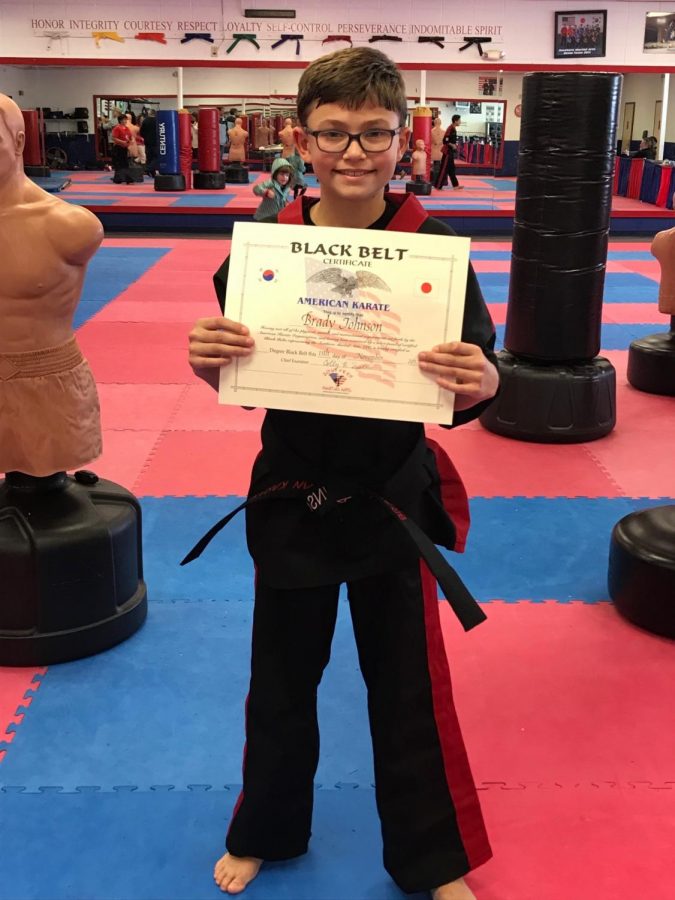Karate: The Empty-Handed Way
Former karate students reflect on lessons learned
Brady Johnson received his black belt certificate at age 10.
September 22, 2021
Karate is a form of martial arts that was developed on the island of Okinawa starting in the 17th century. The defense strategy was most likely started by people who wanted to protect themselves but lacked modern weapons. Karate has since spread across the world, from Japan to the United States. Karate is considered a way of life by those who participate in it, as practitioners of karate strive to excel against themselves.
Karate utilizes a ranking system of its members by using colored belts to show the participant’s skill level. The highest belt color is the black belt, and the lowest belt color is the white belt.
Brady Johnson (10) practiced karate from the age of 6 to the age of 13. Johnson practiced karate at Southern Martial Arts on East Main Street and is a black belt.
“The best part of karate is the life lessons it teaches you, such as perseverance,” Johnson said.
Since achieving his black belt, Johnson has stopped doing karate, as he is now focused on playing baseball. However, he still remembers the lessons he learned from karate. One important value of karate is viewing the sport as a method of self-defense, not unauthorized violence, as the word translated means “empty hand way.”
Ben Brough (10) has also practiced karate at Southern Martial Arts and considers the mental skills that pair with karate crucial to the art.
“It is important to emphasize self-defense because a student not taught that karate is for self-defense only might hurt someone out of anger when there is no need to use the skills learned,” Brough said.
Karate has five rules that go along with learning self defense: effort, etiquette, character, self-control and sincerity. Students are expected to practice these rules throughout practice and in their daily lives. Students are also expected to demonstrate a hard work ethic; vigorous training is required to master the exercises, movements and skills.
Elliot Wesson (11) has practiced karate from a young age.
“The most important lesson I learned from karate would be working through the exhaustion to really cement the exercise and movement, so in essence a good work ethic,” Wesson said.





